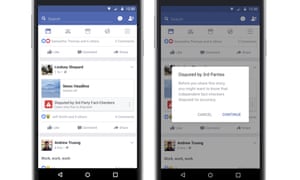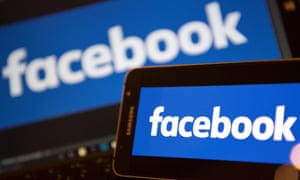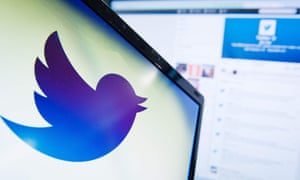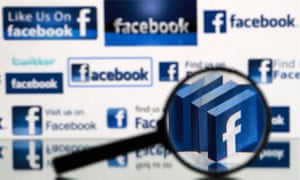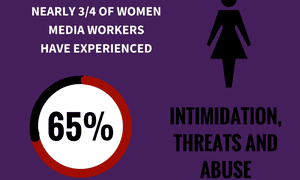Q1: Handwriting is a real problem as it is difficult to make out your points.
7) For question 1, I would argue that it isn't the best however it didn't fall victim to the issue that some of the students by not looking into media language techniques.
Question 2 has had a lack of question focus so therefore it has a lack of focus since it drifted away from the focus on products and instead focused on audiences briefly which would harm credibility on the question.
8)
Q2: Not enough focus on the question about audiences. Need to talk more about media products or values and beliefs. No real focus on the Q1 debate.
Q3: This is a good start but just not enough for a 12 mark question. Time management would need to be improved.
Section B
Q6: Page 5 - Need to link Marxist perspective to question. Lacks question focus in the second half - drifts away from institutional survival. Marxism could be argued against the suggestion that traditional institutions would face a struggle to survive. Handwriting is difficult to read.
2) In this PPE, I failed to meet my target grade which suggests that more work would be needed so that it could improve. I was 6 marks off the next grade and 16 off my desired grade.
3) Potential points made in Question 1:
-Use of differing production values
-Use of interviews involving residents in New Era Estate
Question 2:
-None was made
Question 3:
-Didn't make any points in regards to what the examiner would've suggested.
4) Strongest Section A question: Q1. This would be because of how it compares the texts. However, this still wouldn't be a solid answer which means that there would still be work needed to be done.
5) Weakest Section A question: The weakest would have to be Q2. This would be because of the lack of focus that is present by straying away from the question. When the question had focused on product, I had instead started to talk about audience which has no relation to the question.
6) Could've mentioned the historical roles of media producers which could've developed the answer about the survival of institutions. As well as that perspective of traditional media in my answer to focus on a Marxist perspective that goes against the question.
4) Strongest Section A question: Q1. This would be because of how it compares the texts. However, this still wouldn't be a solid answer which means that there would still be work needed to be done.
5) Weakest Section A question: The weakest would have to be Q2. This would be because of the lack of focus that is present by straying away from the question. When the question had focused on product, I had instead started to talk about audience which has no relation to the question.
6) Could've mentioned the historical roles of media producers which could've developed the answer about the survival of institutions. As well as that perspective of traditional media in my answer to focus on a Marxist perspective that goes against the question.
7) For question 1, I would argue that it isn't the best however it didn't fall victim to the issue that some of the students by not looking into media language techniques.
Question 2 has had a lack of question focus so therefore it has a lack of focus since it drifted away from the focus on products and instead focused on audiences briefly which would harm credibility on the question.
8)
Question 2 LR
Media products are used to try and make their audience set values and beliefs would be through authenticity. A majority of news sites that are verified on Twitter would be considered trustworthy. However, some made up look a like news twitter pages look authentic so therefore this would mean that there is still some aspect of trying to make products such as a fake twitter page appear believable.
In addition to this, since fake news isn't verified until days later by an expert, a twitter post looks like any other so unless it is verified, it is uncertain to check and see whether or not this is a good story as it could be a fake story that is tailored to the audience. An example would be the bad stories which surround President Donald Trump. This would be because it is tailored to a liberal perspective that makes it more encouraging to them.
Furthermore, American late night shows that cover Trump's Presidency would also be covered in a more liberal perspective which would also present how it would present their beliefs onto their audience by humouring President Trump due to the increased number of issues that are present in the Affordable Care Act which has made it more from the Republican perspective. This can highlight how an audience can be influenced into having more liberal or left-wing opinions in politics. Especially since the recent controversy between former FBI Director James Comey and how late night hosts presents the negative side of the Trump Administration. This could be argued as a Marxist perspective since it is using what the majority of what their audience opinions are in politics to further encourage audiences to believe in their opinions. This is due to how it can be presented with the two-step flow model and how late-night hosts such as Stephen Colbert influence their audience by dumbing down recent event that have occured.
In addition to this, since fake news isn't verified until days later by an expert, a twitter post looks like any other so unless it is verified, it is uncertain to check and see whether or not this is a good story as it could be a fake story that is tailored to the audience. An example would be the bad stories which surround President Donald Trump. This would be because it is tailored to a liberal perspective that makes it more encouraging to them.
Furthermore, American late night shows that cover Trump's Presidency would also be covered in a more liberal perspective which would also present how it would present their beliefs onto their audience by humouring President Trump due to the increased number of issues that are present in the Affordable Care Act which has made it more from the Republican perspective. This can highlight how an audience can be influenced into having more liberal or left-wing opinions in politics. Especially since the recent controversy between former FBI Director James Comey and how late night hosts presents the negative side of the Trump Administration. This could be argued as a Marxist perspective since it is using what the majority of what their audience opinions are in politics to further encourage audiences to believe in their opinions. This is due to how it can be presented with the two-step flow model and how late-night hosts such as Stephen Colbert influence their audience by dumbing down recent event that have occured.



